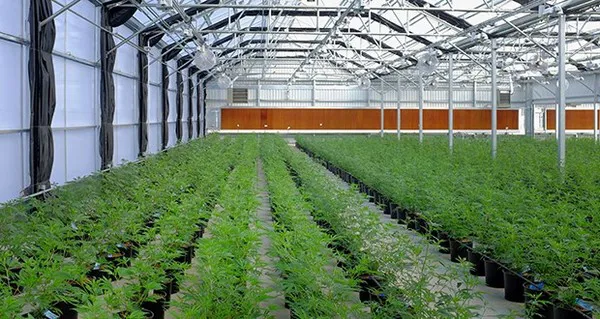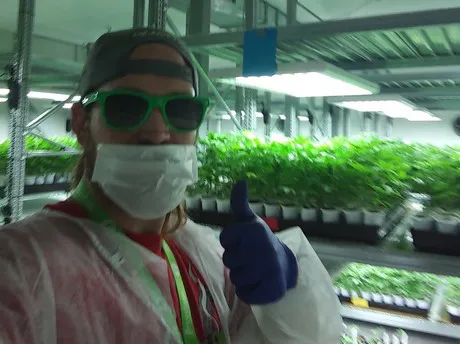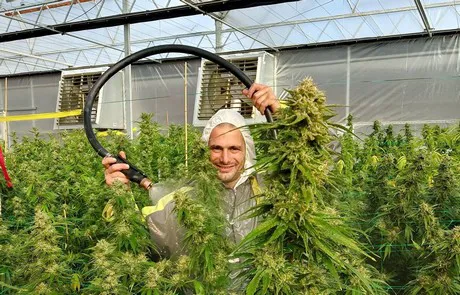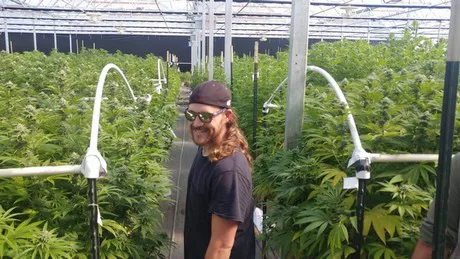Danny Kush is a cannabis grower who has been focusing on micro-climate management in greenhouses. “I am the greenhouse manager at Nature’s Alternative Farms,” he explains. “We grow in many different environments such as indoors, outdoors, and in greenhouses. As of now, I am focusing on our facility in Colorado, where we are going to start a new genetics program through which we are going to produce large amounts of seeds.”

Micro-climate management
According to Danny, micro climate management requires a thorough study of many different conditions in a grow environment. “By gaining a better understanding of various elements such as the entire soil content and a detailed VPD calculation, it is way easier to anticipate any variables that might create a lesser quality,” he points out. “Bluntly put, it is possible to compensate the grow in order to make it better and promote the genetic qualities of the plants.”
Of course, such deep management of the grow environments come with challenges. “Most of the times, it comes down to a lack of sunlight during fall and winter, especially here in Colorado,” says he. “And with all of that comes the challenges of keeping the humidity and the VPD at a proper level.”

Knowledge-demanding industry
Thus, Danny made a few tweaks to the management of the greenhouse. “Eventually, setting up the perfect micro-climate wasn’t much of a challenge as we knew what needed to be done,” says he. “We have a dehumidification process, which was based off of our VPD measurements. We use LED lights, as they produce less heat; on top of that, we have a thermal radiant system and we are able to compensate for that. At the end of the day, it all comes down to knowing the plant you are growing.”
Which is something that is not significantly common within the cannabis industry, especially considering all those growers whose only past experience was to grow their plants illegally in small-scale conditions. “Most of the time, these growers struggle with making the transition from small to large-scale,” he remarks. “The most common issue is related to the management. As in, there are many differences between small and large-scale growing. But eventually, it all comes down to the different types of management growers are asked to perform. At a small-scale operation, growers manage only themselves. On the other hand, when it comes to large-scale operations, you have to connect with all the people around and not put your ego above all: you cannot take care of each and every plant individually yourself, paying attention to every small detail manually. You cannot keep the same concept when scaling up, and thus you would start having issues with expenditures. This is a very efficiency-demanding industry, and it is not possible to thrive by doing things that way.”

However, as time passes, the industry is showing ever more signs of maturity, and the future of growing cannabis might be around the corner. “The advancement of this industry is going to be dependent on adapting to a system which relies on natural light in an artificial environment. By utilizing this framework, many newer ways to grow open up.”
Underground growing
That is why Danny believes that one way that this concept can be applied is through the concept of subterranean types of climate control, which allows for natural lighting. “In other words, underground facilities which have the top ‘open’ to let the sunlight in,” he explains. “This helps a lot with micro-climate control issues, as it is easier to keep the climate stable in an underground facility. Good commercial farms using that concept will become more of a standard, especially in very warm areas and desert areas, like in California or Nevada for instance.”

By growing in such efficient ways, it is possible to partake in the ‘race to the bottom’ which will characterize the cannabis industry in the times to come. “You need to keep the price of your products low,” he says. “It is important to understand that prices need to go down, and only those players who can be utterly efficient will truly thrive in this sector. Technological advances are going to continue to push the capabilities of our production and quality.”
For more information:
Danny Kush
lifewithdannykush.com
YouTube channel
